The best tips for hay fever season
As beautiful as spring may be, for hay fever patients it is a plague. The immune system is at its weakest right now: this is flu and allergy season.
In Ayurveda, the transitions from summer to autumn and from winter to spring are the main times for the risk of an unpleasant immune system reaction and allergies. Learn how to strengthen your body for the changing seasons and relieve seasonal sensitivities.
Seasonal sensitivities
According to Ayurveda, we carry the characteristics of one season into the next if we don't respect the seasonal transitions. This is one of the main causes of the accumulation, aggravation and imbalance of the doshas (vata, pitta and kapha).
For example, when winter ends and spring begins, the dryness of vata caused by cold can irritate the mucous membranes of the body. This leads to excessive, immunocompromising mucus production in the sinuses, respiratory tract and digestive tract. This is how seasonal sensitivities to food, pollutants and pollen develop.
Sensitivity of the sinuses in spring
In Ayurveda, spring is called the kapha season. Kapha also means "mucus". For many, kapha season is also the season of allergies. The snow begins to melt and it rains more often, causing the earth to retain more water. This is nature's response to a long and dry winter.
The body also stores more water at this time of year. This can lead to congestion of the delicate mucous membranes that line the respiratory and digestive tracts. After several months of winter dryness, these mucous membranes are prone to excessive, reactive mucus production.
An important principle of Ayurveda is that seasonal fruits act as an antidote to the disease-causing properties of the season. In spring, dry, bitter roots, wild herbs and leafy vegetables grow abundantly and are the perfect antidote to mucus accumulation.
Unfortunately, modern man rarely prepares his body with fresh herbs to cope with this transition. Eating foods that are not in season can lead to allergies, digestive problems and an excessive immune response to the spring pollen count.
8 ayurvedic tips for hay fever
1. eat seasonal foods
In spring, eat mainly bitter, astringent (tart) and spicy foods to support a healthy respiratory response to spring pollen. Bitter foods include fresh wild herbs (wild garlic, nettle, cress), leafy greens (spinach, lamb's lettuce) and bitter roots such as dandelion and burdock root. Legumes and lactic fermented foods are astringent. All spicy-tasting foods have a warming effect and reduce kapha. Some pungent tasting roots such as krenn (horseradish), ginger and turmeric are favourable here.
In spring, try to avoid all refined and processed foods. Reduce salty and sweet foods as well as dairy products, wheat, heavy grains, cheese and nuts. Pulses are great in spring as they are astringent and absorb water, reducing kapha.
2. Avoid lymphatic congestion and purify blood.
According to Ayurveda, one of the most common imbalances associated with environmental sensitivities is lymphatic congestion. In the body, lymph vessels run through the intestines, respiratory tract, sinuses and tissues just under the skin. The lymph transports both immune substances and toxins to be eliminated. Congestion of the lymph can cause toxins and impurities to accumulate in the mucous membranes of the body, resulting in excessive mucus production.
You can avoid lymphatic congestion through regular oil massage and adequate hydration. One way to ensure adequate hydration is to take a hot water cure.
The Ayurvedic herbal preparation MA1010 is traditionally used to purify the blood.
3. drink hot water during the kapha (spring) season.
One of the best ways to hydrate and support a healthy lymphatic immune response during the seasonal change of spring is to drink hot water.
Boil the water for about 5-10 minutes and allow the sediment produced during boiling to sink. Pour the boiled water into a thermos. Drinking hot water every 15-30 minutes a day for 1-2 weeks is a classic Ayurvedic spring cleanse to remove excess kapha from the respiratory and intestinal tracts.
4. eat plenty of foods rich in vitamin C.
Vitamin C blocks the release of histamine from inflammatory cells. You can also find plenty of vitamin C in the following foods:
- Citrus fruits
- Amalaki - the so-called Ayurvedic miracle berry (found in MA1 tablets)
- Papayas
- Broccoli
- Brussels sprouts
- Bell peppers
- Kale
5. detoxify at the change of seasons
At the end of each season, the characteristics of that season accumulate. According to Ayurveda, when the seasons change, we are most at risk for health problems if we do not deal with these seasonal changes properly. Each change of season is called a ritusandhi. Ayurveda has recommended for thousands of years to cleanse and strengthen the body through the digestive system during this time to successfully manage the change of seasons.
We offer various cleansing cures for spring. The Herbal Detox webinar is still available as an on-demand cleansing treatment at any time. At the end of the Kapha season, the live webinar Happy Slim - Contentment in Head and Tummy starts. This involves a thorough cleansing cure and a fundamental change in eating behaviour and body perception. In the process, fat burning and digestion get going again. Liver, gall bladder, intestines and lymph are cleansed. This is the optimal spring cleansing cure for at home!
6. Eat a medium breakfast, a large lunch and a light dinner.
It's scientifically proven! Our biological clocks for digestion are turned on at breakfast and lunch. At dinner, the digestive output is significantly lower. Studies show that for the same calorie intake at breakfast and lunch, there is significantly more weight loss and health benefits when food is eaten earlier in the day compared to lunch and dinner.
7. Ayurvedic Intermittent Fasting
Spring is a barren season. The harvest of fresh food in late winter and early spring is minimal - a few roots and some greens. In most cultures, spring fasting involves omitting, reducing or altering food during this period.
According to Ayurveda, this is a time to be especially light and eat less food. If possible, you should plan lunch as your main meal and eat only a light dinner. Once you have found this rhythm, you can occasionally skip dinner and drink only water or herbal tea in the evening to satisfy cravings. Do this for a fortnight every spring or whenever the seasonal pollen becomes bothersome.
8. avoid dairy products
If serious hay fever symptoms occur, immediately avoid milk and all dairy products except for some butter and cream. This will help reduce the influence of Kapha immediately.
Ask in our doctor's office or in the shop which Ayurvedic herbal preparations you can take to support you in this situation.

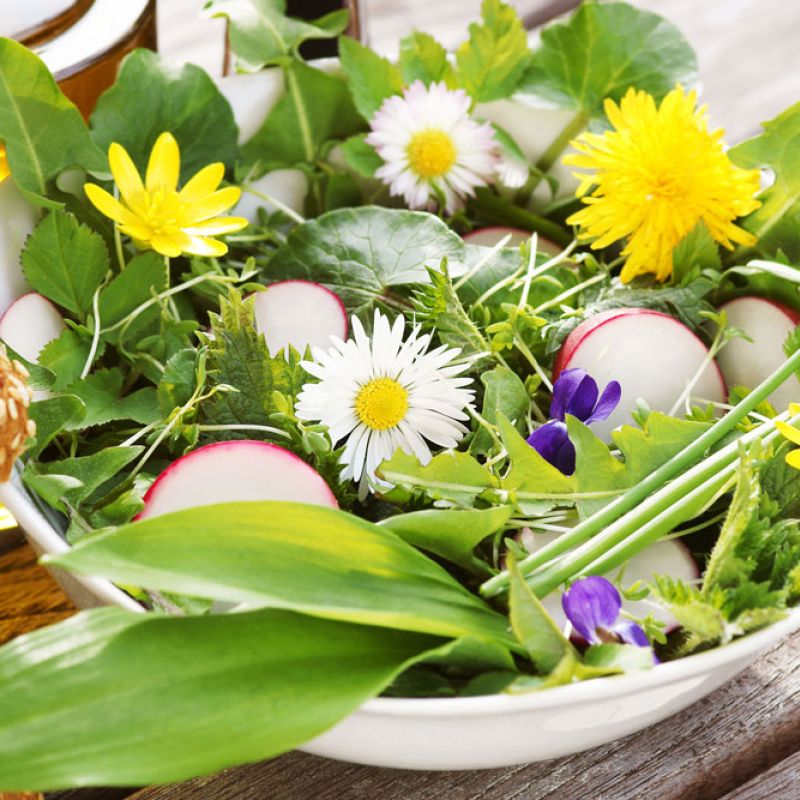
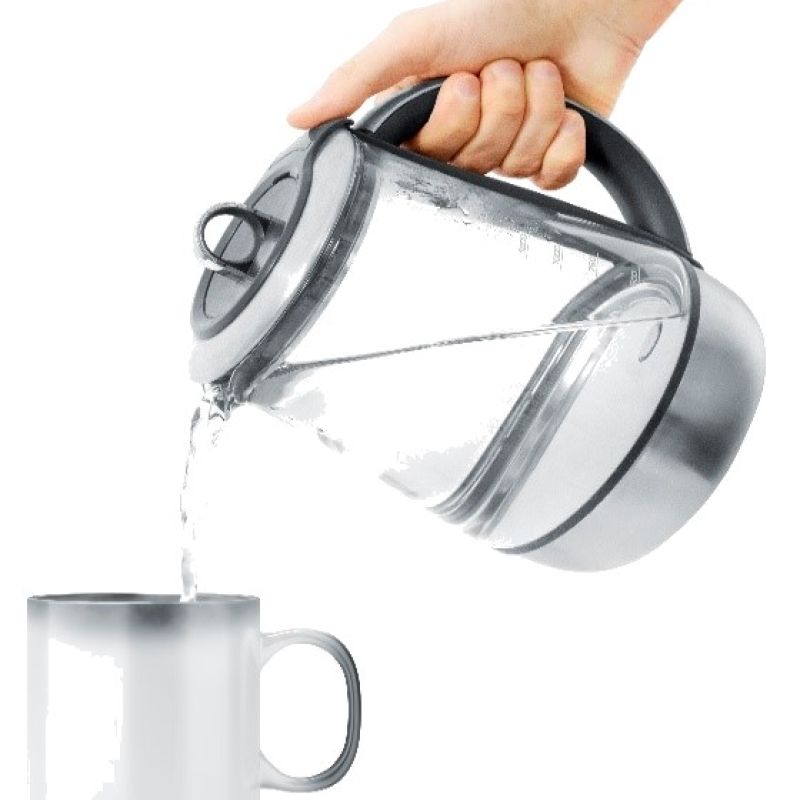
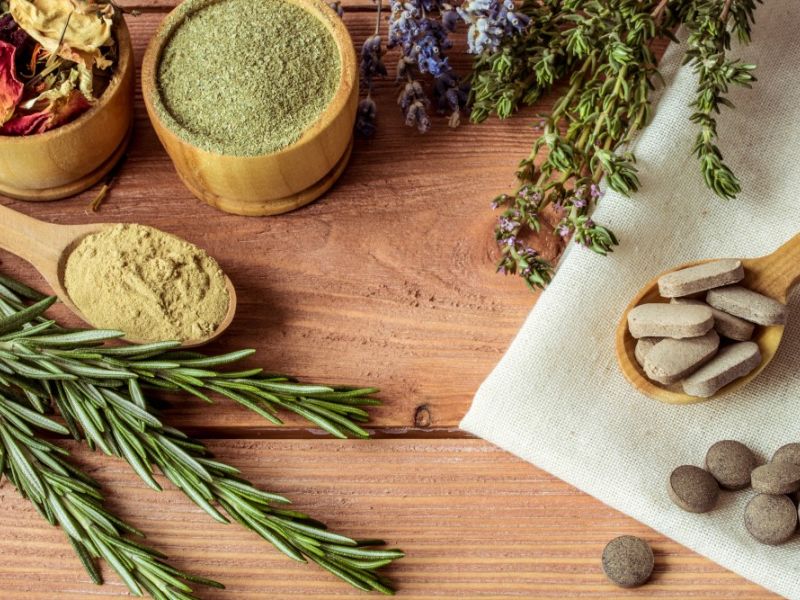


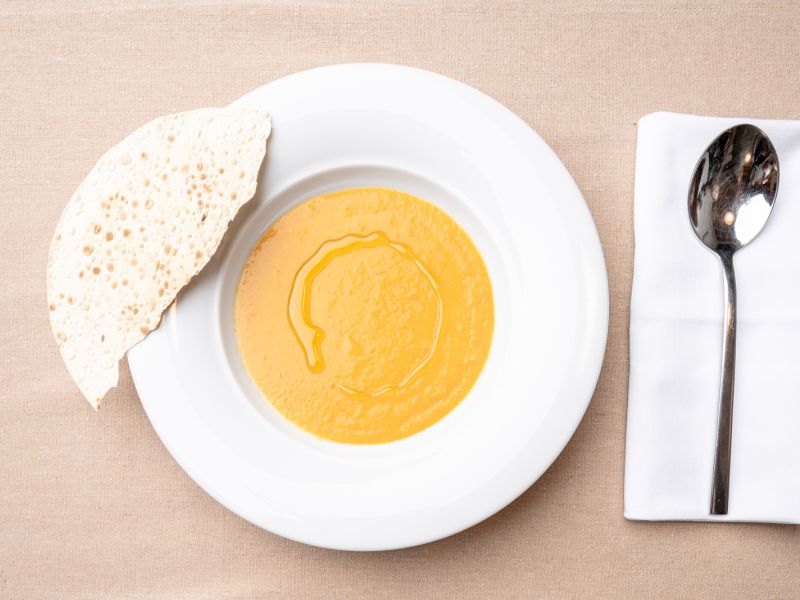
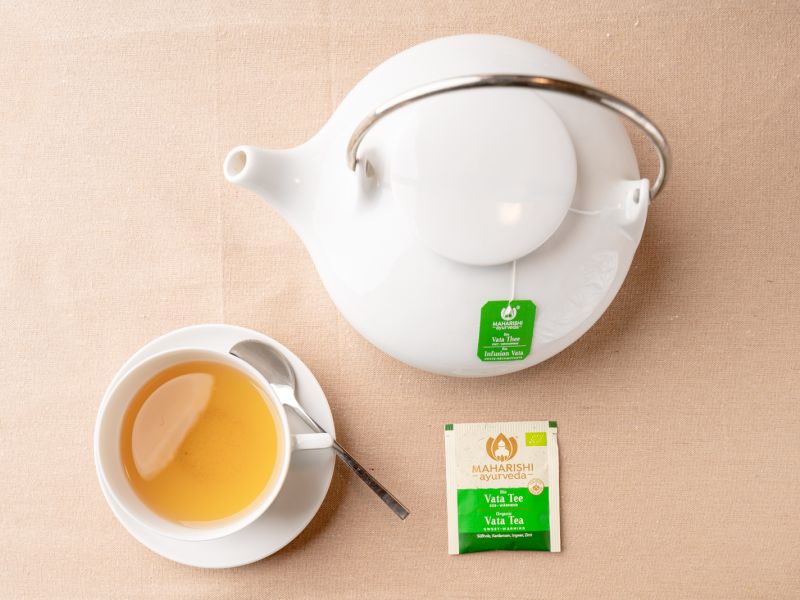

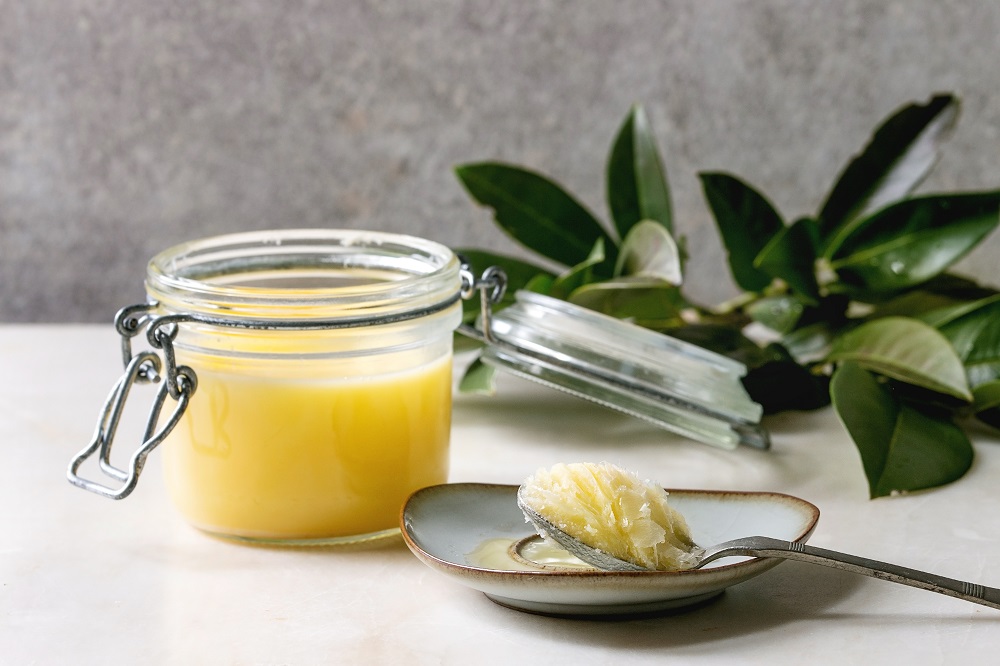
We look forward to your feedback!